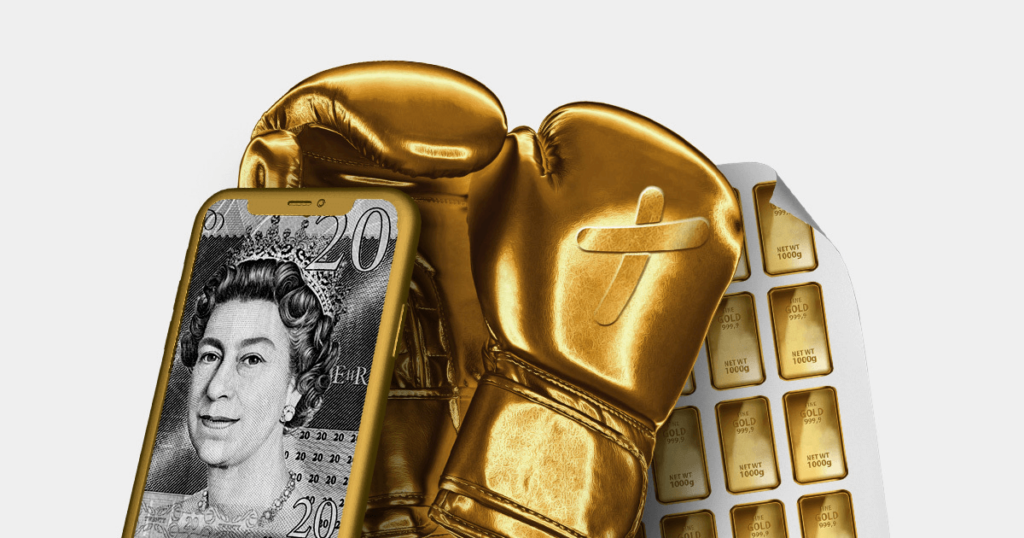A Post-Holiday Look at Hidden Bank Fees – And How to Avoid Them Next Time
The May bank holiday was the perfect excuse for a long weekend abroad. Whether you strolled through the streets of Paris, relaxed on a beach in Spain, or flew across the Atlantic to explore the US, the trip likely felt worth every penny. But now you’re home, unpacked, and perhaps squinting at your bank statement. And something doesn’t add up.
Even if you stayed within budget, those totals can look suspiciously higher than you expected. The culprit? Sneaky fees and poor exchange rates. These unwelcome costs quietly creep into every transaction, costing British travellers more than they realise, especially during popular holiday periods.
The good news? You don’t have to let it happen again.
How Much Brits Are Spending Abroad
Let’s start with the big picture. In 2023, British travellers spent an average of £894 per person during holiday. That figure was up more than 20% from pre-pandemic levels and is expected to keep rising, particularly as inflation and pent-up demand continue to influence travel behaviours.
Even those trying to be frugal may find themselves overspending. A report from Post Office Travel Money found that 67% of holidaymakers exceeded their planned budgets, often due to unanticipated costs. Families in particular spent on average £312 more than they intended.
But where exactly is this extra money going?
What’s Really on That Bank Statement?
If you used a standard UK debit or credit card abroad, you likely got hit with multiple charges that weren’t always apparent upfront. Most travellers don’t realise that these fees accumulate behind the scenes with each tap, swipe, or withdrawal.
Here’s how it typically breaks down:
- Foreign transaction fees: Often 2.75% to 2.99% per purchase
- ATM withdrawal charges: £1.50 or more each time, sometimes from both your bank and the ATM provider
- Currency conversion markups: Up to 12% when choosing to pay in GBP instead of the local currency
These charges are separate from the actual price of your purchase. So when you buy a €40 dinner in France, you’re often paying an extra £1–2 just for the privilege of using your card. Multiply that across every coffee, cab fare, and museum ticket, and it adds up quickly.
These fees don’t feel like much on their own. But if you spent £885 abroad during the bank holiday, you may have paid £25–£30 extra in fees, without even realising it.
Where People Are Feeling It Most
According to TallyMoney customer data, the top countries for overseas card usage during the bank holiday were:
- Ireland
- United States
- Spain
- Netherlands
- France
These are all destinations where currency exchange plays a role, and where most travellers default to their usual bank card without questioning the cost. You might have thought you were getting a good deal on your getaway, only to find the real cost showed up after you got home.
You’re Not Overspending – Your Bank Is Overcharging
Here’s the truth: most people aren’t reckless with holiday budgets. They’re simply using tools that don’t work in their favour. While many UK current accounts advertise “no monthly fees”, they still quietly charge for foreign usage, especially when it involves currency conversion or ATM withdrawals.
And it’s not just the fees. Traditional currencies themselves are part of the problem.
Why the Pound Isn’t the Best Travel Companion
The pound is a fiat currency, meaning it isn’t tied to any physical asset. Its value fluctuates based on economic policy, government decisions, inflation, and market confidence.
While this system may work for domestic transactions, it’s not ideal for holding or spending money abroad. Pound sterling has been gradually losing purchasing power for years, especially compared to more stable stores of value like gold. Inflation continues to chip away at its strength, which means your travel money is shrinking even before you spend it.
The better option? Spending a currency that holds its value over time, and isn’t subject to the whims of monetary policy.
TallyMoney: Spend Abroad with No Charges, All Year Long
TallyMoney offers something fundamentally different: real, physical gold used as money, held in your name and measured in milligrams. When you spend using your TallyMoney debit Mastercard, the equivalent amount of gold is sold at the global wholesale buy price, and the merchant receives local currency.
No bank middlemen and no fees for international spending.
Here’s how it works:
- You transfer money into your account which automatically converts into tally (1 tally = 1mg of physical gold)
- Tally applies a 1.49% gold purchase fee on that
- You then spend freely at home or abroad, with:
- No foreign transaction fees
- No ATM withdrawal fees (up to 3 per day, £250 daily limit)
- No dynamic currency conversion markups
- Exchange based on the Mastercard Exchange Rate – fair, simple, and transparent
- No foreign transaction fees
Gold: The Smarter Way to Spend Abroad
Gold has always been considered a hedge against inflation and a long-term store of value. But in the past, it wasn’t exactly spendable – until now.
TallyMoney turns physical gold into an everyday spending currency. This means:
- Your holiday money retains its value better than fiat
- You avoid the common trap of “unwelcome fees”
- You gain control over your money, regardless of which country you’re in
According to the World Gold Council, gold has outpaced UK inflation over the past two decades. Since 2005, its price in GBP has more than tripled, while the pound has steadily declined in purchasing power.
For long-term savers and savvy travellers alike, spending in gold makes more sense than ever.
Why This Matters After the Bank Holiday
While most guides talk about how to prepare for a holiday, what you do after you return is just as important. If you’ve just experienced the sting of post-trip bank charges, now is the time to make a change.
Because the truth is, you’re going to travel again. Whether it’s the August bank holiday, half term, or a Christmas market trip, the next time you spend abroad could be fee-free if you use the right tools.
Three Questions to Ask Yourself
- Did I pay extra fees just to spend my own money?
If so, you’re not alone – but you don’t need to repeat the mistake. - Is my bank quietly eroding my holiday budget?
Many are. And they’re doing it under the radar, with small percentages that add up fast. - Can I actually spend money without using something that keeps losing value? (Looking at you, pounds!)
Oh, absolutely. With Tally, you’re spending something golden. Literally. One tally equals one milligram of gold – proper solid savings, not flaky fiat.
Final Thoughts: Protect Your Future Travel Money
The May Bank Holiday might be over, but the lesson it taught is just beginning. The way you spend abroad can have just as much impact as where you go. Choosing a tool that’s built for long-term value – and for international use – can save you money and stress.
With TallyMoney, you get:
- Real, physical gold that you own
- A Mastercard you can use anywhere
- Transparent pricing with no international fees
- A smarter way to protect your holiday spending – all year long








